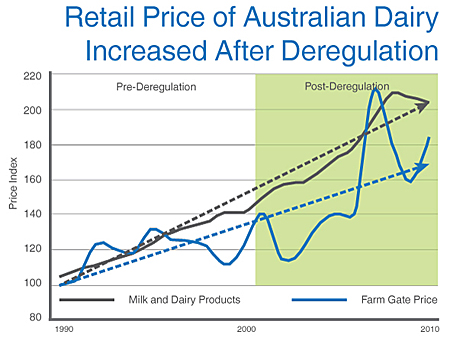From Dairy Farmers of Ontario: a listing of the preliminary impact. I wonder what the Bankers are thinking? Could this have an equity impact? For now here are the issues.
DFO Responds to Proposed CETA Deal
October 17, 2013
CETA Deal Doubles European Access to Canadian Market & Hurts Canadian DairyOn Tuesday, October 15, 2013, the Dairy Farmers of Canada (DFC) executive was notified
that the Comprehensive Economic and Trade Agreement (CETA) negotiations between Canada
and the European Union (EU) have concluded.
We have been informed that the EU will get an additional 17,700 tonnes of tariff free
access for its cheese into the Canadian market (TRQ).
There are different ways to quantify the impact this will have on Canadian farmers and
the Canadian dairy industry. However, it is very significant and represents at least 4.5 %
of the Canadian milk produced for the cheese market and is approximately 2.25% of all
milk produced in Canada.
In addition, the impact of giving increased TRQ to the EU represents a significant risk that
even more market access will be given for the on-going Trans Pacific Partnership negotiations.
There is little doubt that the US, Australia and New Zealand will see this as an opening
and pursue their interests aggressively; certainly for cheese and likely other dairy products,
as well.
While the Federal Conservatives have stated they continue to support the
Canadian dairy system, known as Supply Management, this deal does not support dairy farmers.
Giving Up Canadian Dairy
The Canadian dairy system provides safe, high quality Canadian milk products and
supports a strong local economy. This deal compromises our system.
The CETA deal will cost our Canadian local dairy economy millions of dollars. This potential
deal is a loss for Canadian dairy farmers and industry. It will take income from Canadian
dairy farmers and their communities and give it to the European industry. With this loss of
farm income and squeeze on cheese makers, it is also taking economic development and
jobs from Canadian communities.
Our farmers are demanding that the government matches its actions with its words by
standing up for Canada and the Canadian dairy industry by not giving up our safe high
quality Canadian dairy.
What the Deal Means in Numbers
What the Proposed Deal Could Mean for Canadian Dairy
- The EU access will total 31,971 tonnes or 7.5% of the Canadian cheese market.
- Total imports will reach 38,171 tonnes or about 9% of the current Canadian consumption.
- The EU will have 63% of the fine cheese market in Canada.
- The additional access is equivalent to a 2.25% cut in farm quota.
- That quota cut carries an estimated farm income loss of nearly $150 M
- Farmers will then have to rationalize their dairy herd



